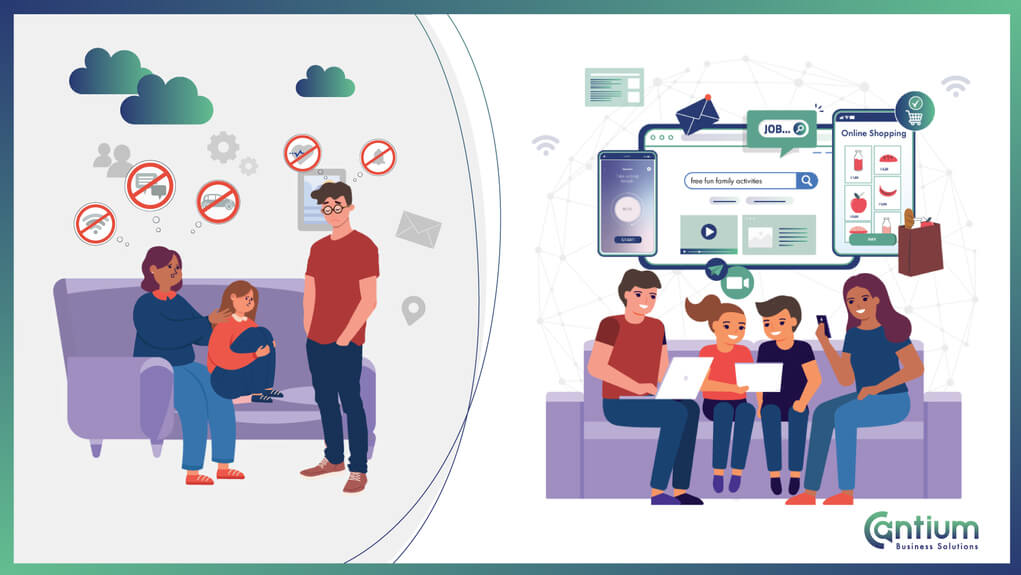
Digital Exclusion in the UK
The latest Office of National Statistics (ONS) data estimates that 4.2 million UK citizens have never used the internet or last used it more than three months ago.
That’s 7.8% of the UK adult population that are not regularly using the internet and associated devices, while 21% of UK adults do not have the essential digital skills needed for day-to-day life.
Digital exclusion is a significant problem for the elderly, people with disabilities and those without the financial power to get online. The challenge is to equip everybody digitally excluded with the skills, motivation and trust to go online, be digitally capable and utilise the power of the internet to access key services.

Cantium's Digital Exclusion Insights
Our Digital Exclusion insights provide you with the latest information, examples and insights on Digital Inclusion in the UK. The challenge is to increase digital literacy among elderly, and for youth and adults. We address this by studying data from the Census, Office for National Statistics (ONS), Lloyds Banking Group and other organisations working to tackle digital exclusion.
By working with organisations across the public sector, in local government and health care, our insights also include information and intimate details on how other public sector organisations are tackling digital exclusion. We can provide you with guidance on how you can improve digital literacy and track this effectively in your communities.

The Digital Exclusion Challenge
Our insight on the digital exclusion challenge provides an overview of the state of digital inclusion in the UK and includes statistics from the Office of National Statistics (ONS), Lloyds Banking Group and the Government’s 2014 Digital Inclusion Strategy.
The aim of the article is to help you to understand the digital divide in the UK and how local authorities need further support to ensure that public funds are spent in the right places, on the right people, and in the right ways.
You can read more by clicking the link below.
More Digital Exclusion News and Insights
View allDigital Exclusion Press Coverage

9 August, 2022
The MJ
By equipping the population with the skills, motivation, and trust to be digitally capable, local authorities can pave the way for digital inclusion.

1 August, 2022
Public Technology
Cantium's Graham Cutting explains why local authorities and their suppliers must connect the digitally excluded.

7 July, 2022
Think Digital Partners
Cantium rolls out digital inclusion project across Kent and Medway to increase access to vital services for vulnerable people
Related Services
Who We Are
Working with Cantium means that public funds continue to support front-line public services. We believe in profit for a purpose and giving back to services that support our communities




